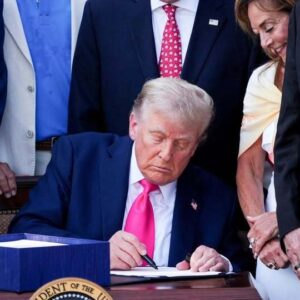President Donald Trump’s recent executive order, presented as a measure against anti-Semitism, has sparked serious concern about human rights. Critics warn it could particularly harm international students and those advocating for the Palestinian cause.
The order allows for the deportation of international students who join demonstrations deemed “anti-Israel.” This approach raises alarms as it directly challenges the principles of free speech and peaceful protest, both central to democratic society.
Rather than addressing anti-Semitism directly, the order appears to focus on silencing dissent against Israel. By framing pro-Palestinian activism as anti-Semitic, the administration uses immigration law as a tool of suppression. For students, the threat of losing visas or being deported creates a climate of fear across U.S. campuses.
Opponents argue that this undermines the very values America claims to champion. Free expression and open debate are cornerstones of both democracy and academic life. Restricting such freedoms risks deepening polarization instead of encouraging constructive dialogue on the Israeli-Palestinian conflict.
Human rights advocates also warn that America’s global image as a defender of free speech may be tarnished. By conflating criticism of Israel with anti-Semitism, the policy distracts from addressing genuine cases of anti-Jewish hatred.
The use of immigration laws to suppress political expression reflects a broader trend: framing dissent as a security threat. This not only endangers international students but erodes trust in the fairness of U.S. institutions.
The chilling effect extends beyond protesters. Scholars, educators, and students may hesitate to voice their views for fear of punishment. Such restrictions run counter to the ideals of academic freedom and open inquiry.
The backlash highlights the urgent need for policies that uphold civil liberties. Protecting the right to dissent ensures a society that is inclusive, democratic, and truly committed to justice.





